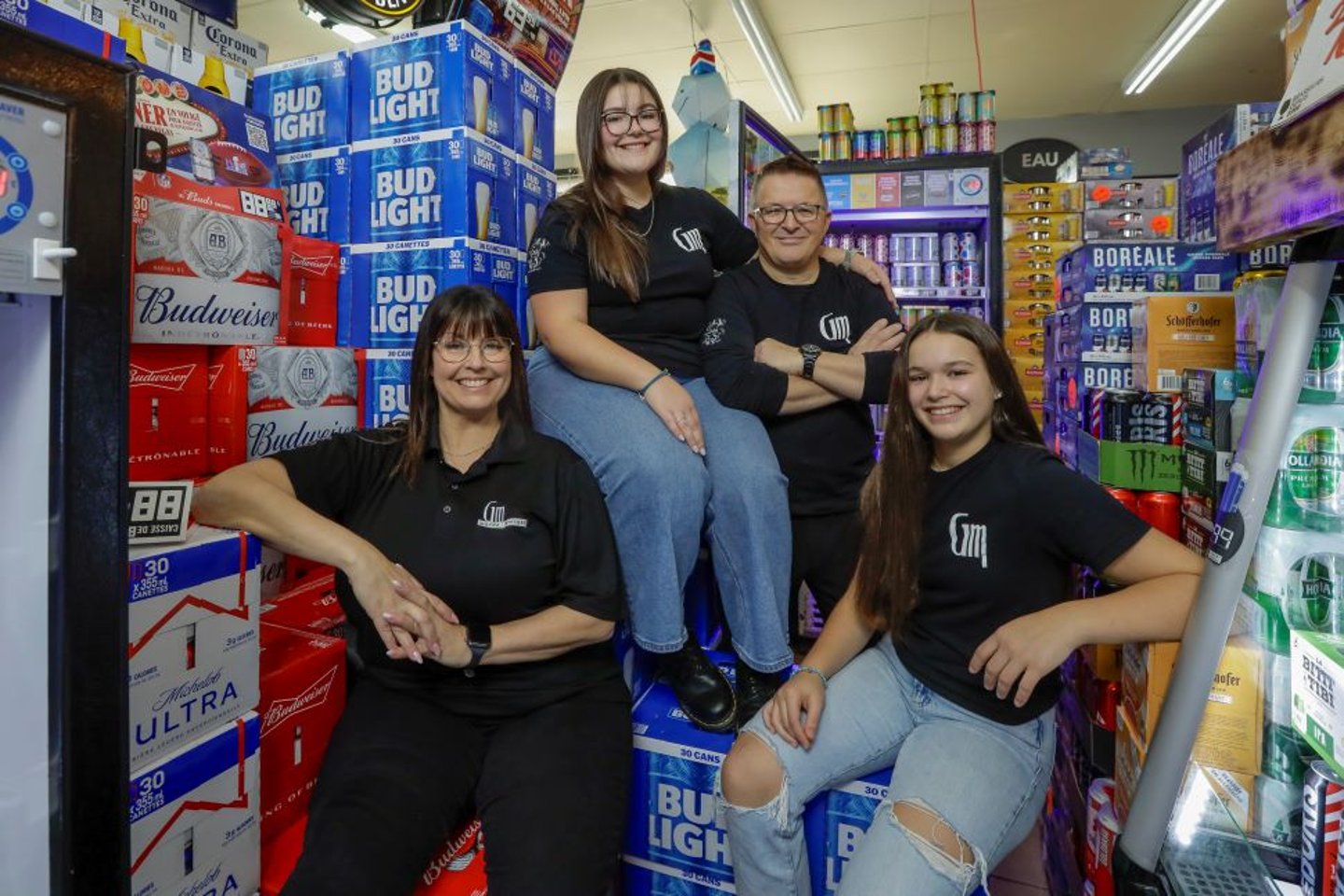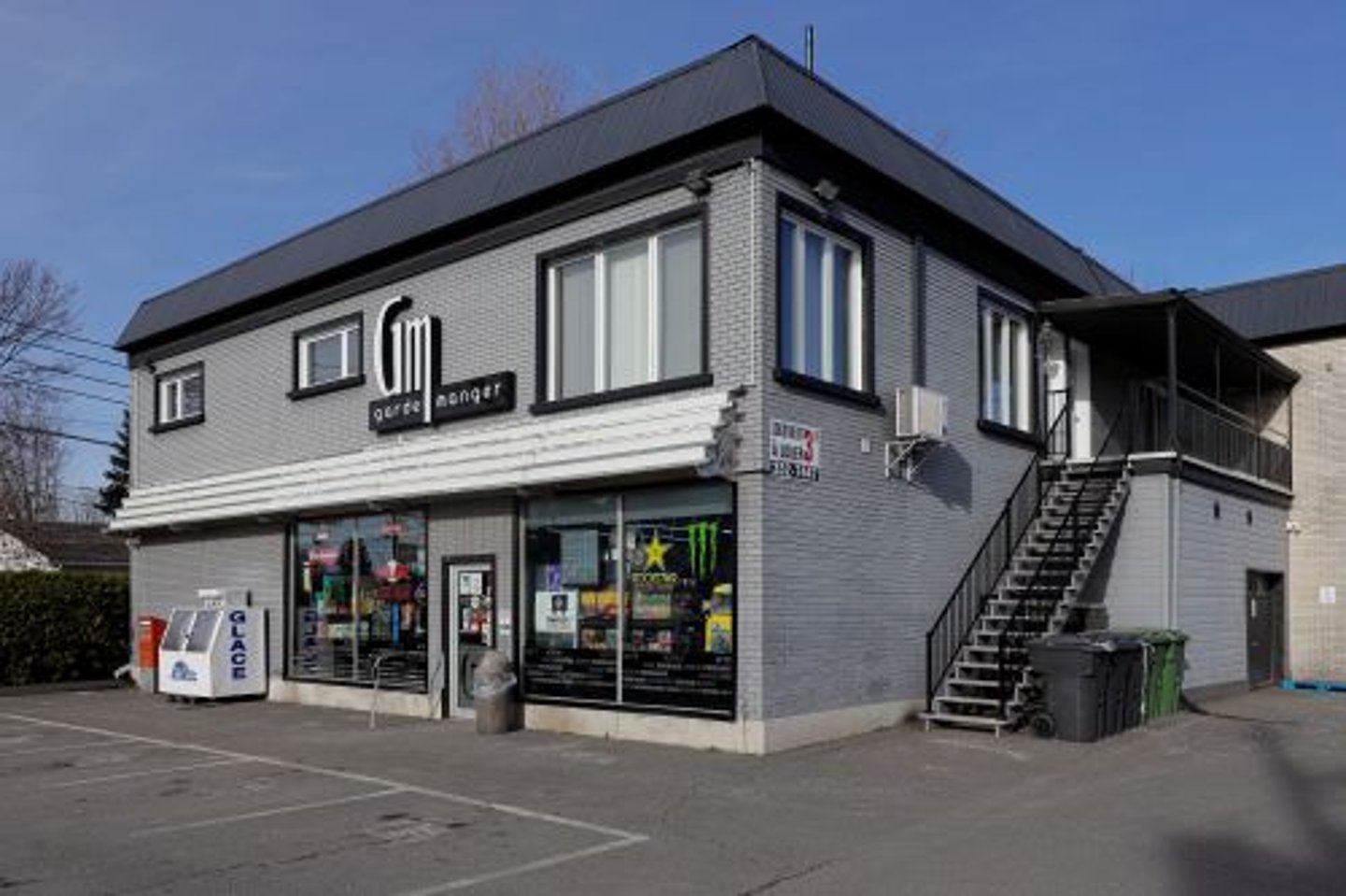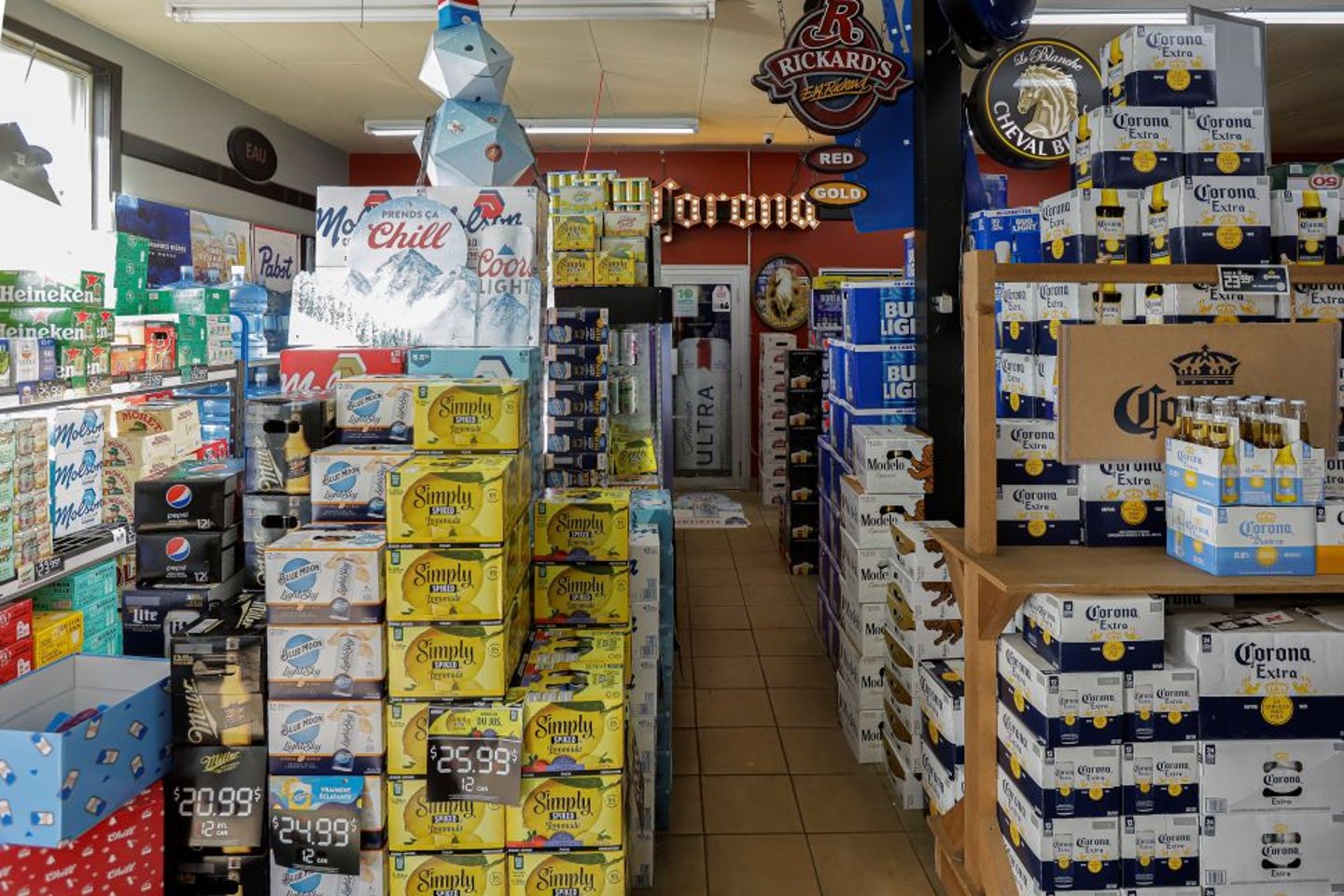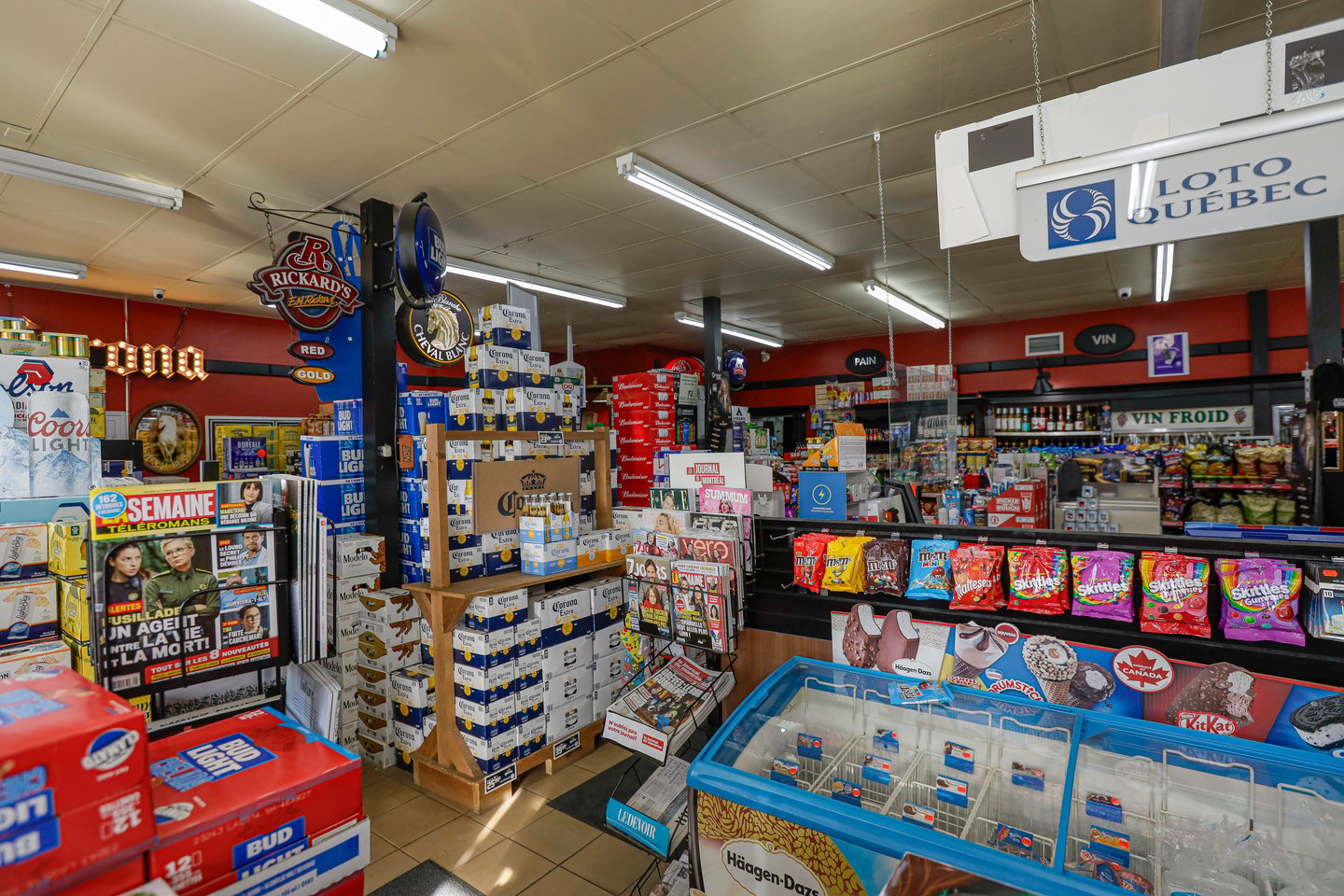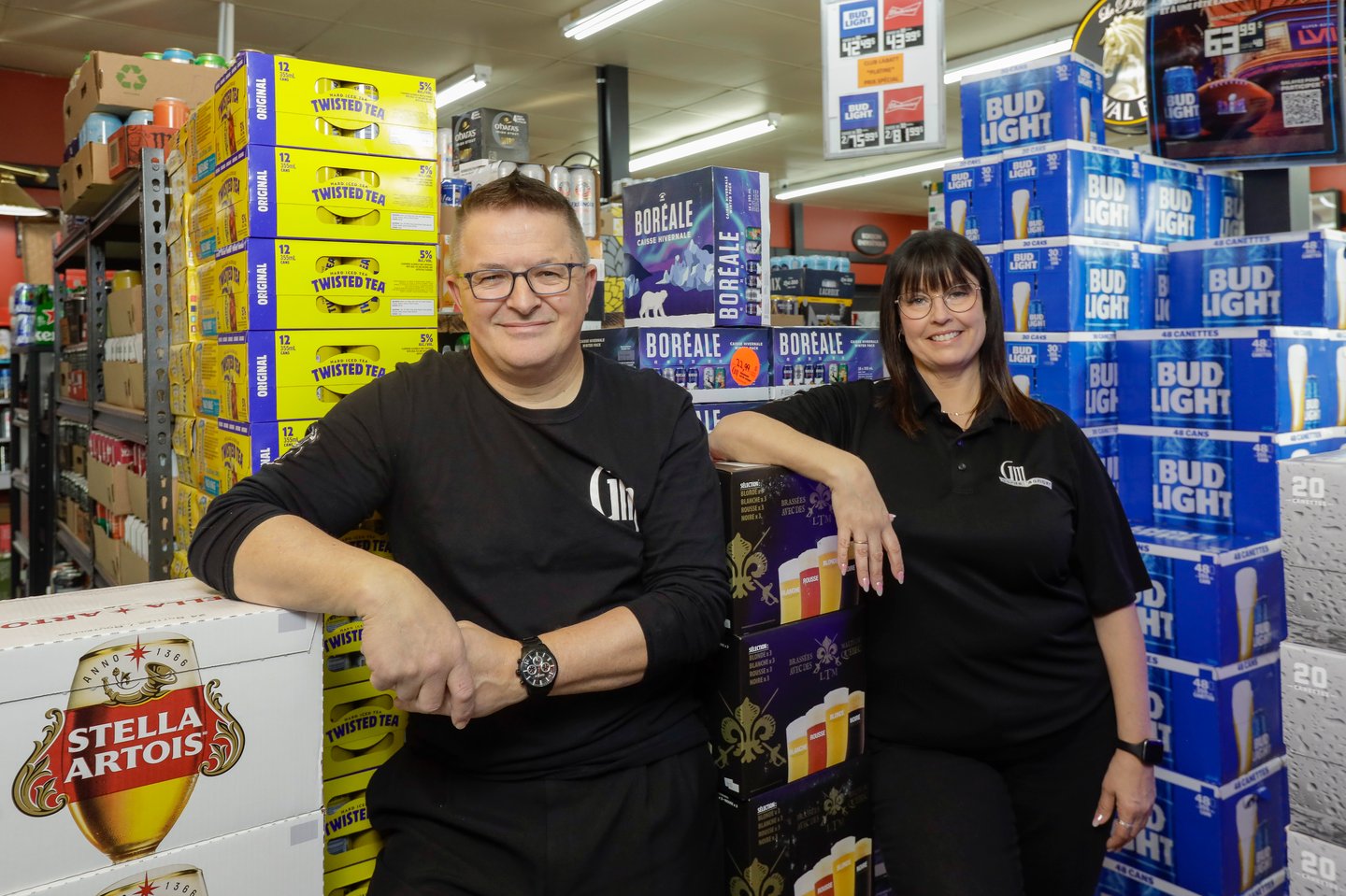Crushing it: Making a Quebec c-store the centre for beer and wine sales
When people in Victoriaville, Quebec think of buying beer, chances are a local convenience store comes to mind. And that’s just how store owners Marc Gauvin and Marie-Josée Dumas want it.
“Beer is our strength,” says Gauvin. “We’re one of the big sellers in town.”
Beer was already a mainstay at the Dépanneur Le Garde Manger (The Pantry) when the couple bought the business in late 2018.
But hard work, together with changes they’ve made based on their decades of experience working for McDonald’s restaurants, have helped raise suds sales at the store to a whole new level.
Their experience is one that c-stores across Canada can learn from as they, too, embark on welcoming the opportunity to sell beverage alcohol.
Setting the stage
Gauvin credits a rented warehouse behind the 30-apartment block the store is connected to for providing them with the space to store large quantities of beer from big brewers.
“We order by the semi-trailer,” says Gauvin, who uses a forklift to move product from the warehouse to the 2,800-sq.-ft. store, which is jam-packed with beers of all stripes. “Buying in volume means we get the best deals. And we always have product on hand.”
The store also carries roughly 30 brands of craft beers, both local and imported. All craft beers are offered cold in more than two dozen fridges of all sizes, some of them supplied by companies, others owned by the store.
Gauvin personally samples every craft product before placing an order.
“You have to be careful because not every craft beer is good,” he explains. “We’ve ordered some in the past that we couldn’t give away, they were so bad. I like beer so now I taste every new product. If I like it, chances are my customers will too.”
Getting the word out
Having large volumes of beer on hand allows the store to put on seasonal specials that are popular with people in Victoriaville, a regional hub of 45,000 in south-central Quebec.
In November, for example, the store distributes a colourful Christmas flier as in an insert in local newspapers. The flier is filled with eye-catching specials on beers, as well as snacks, coffee and gift packages.
“People here wait for it to come out,” says Gauvin. “A lot of them come in to shop with our flier in their hands.”
He said the store’s summertime special is equally sought-after. “Suppliers know that, so they make deals with us to make sure their products get into our fliers.”
Think big
Gauvin says the absence of commercial beer warehouses in the region has also helped make the store a major supplier of beer for local festivals and events like weddings.
“We’re like a subcontractor for the big breweries,” adds Gauvin, who handles beer orders and deliveries at the store—duties he juggles with a full-time job outside the business. “They all have my cell phone number.”
Expand complimentary categories
Though beer is the principal driver of traffic at the store, sales of wine, cigarettes, lottery tickets and fresh-brewed coffee supplied by a local company, La Brulèrie des Cantons, are also on the rise. Gauvin and Dumas elevated the store’s coffee program, investing in a machine to make different brews.
The store also offers ready-made sandwiches and meals from a local food distribution company, Les Aliments François.
“We sell food items that are rapid and ready for people on the go,” says Dumas. “People can heat food in our microwave if they want. But we don’t make fresh food and we don’t want to because we don’t have the space for it, and we want to focus on our core products.”
Managing logistics
In addition to product selection, Dumas credits the store’s good location, its long opening hours and the friendly greetings customers receive when they walk through the doors for making it a popular stop for locals. “People know we’re pretty much always open and that they’ll be well served when they come here.”
The store is open daily year-round from 7 a.m. until 10 p.m. Sundays to Wednesdays and until 11 p.m. Thursday to Saturday. The only exceptions are Christmas and New Year’s Day, when the store opens at 10 a.m. and closes at 9 p.m.
The Gauvin-Dumas family always work and close the store together on Christmas Eve. “It’s a nice tradition we’ve created,” says Dumas, who runs daily operations at Le Garde Manger.
Her responsibilities range from serving customers and doing inventory to placing orders, handling administration and managing the store’s eight employees, which include the couple’s two daughters—Emy, 18, and Alexe, 14—who work on weekends, holidays and during the busy summer months.
Dumas is also always on call and goes into the store quickly when needed (even on her days off)—the family lives just a short drive away on the outskirts of Victoriaville.
Sacrifices made
“We have a big property with a dog, four cats and a pool,” says Dumas. “We used to have a travel trailer too, but we sold it because we weren’t able to use it much after we bought the store.” The couple’s Ducati motorcycles now also sit mostly idle in the garage.
However, Dumas says their all-in approach and iron-clad commitment to the store is the price to pay to ensure both its efficiency and profitability.
“We’ve built the business based on our experiences in the restaurant industry and the lessons we’ve learned as store owners,” says Dumas. “But like with anything, it takes hard work and dedication to make it work.”
Path to ownership
It was a life lesson both Gauvin and Dumas learned growing up in Quebec’s Lower St. Lawrence region. Born and raised in Rimouski, Gauvin moved to Matane, an hour’s drive east, to study to become an electrician. He also moonlighted there at a local McDonald’s—the same restaurant where Dumas, who grew up nearby, got her first job in the mid 1980s.
Despite an eight-year difference in age, the two hit it off. Over the next 20 years, they worked in several McDonald’s restaurants (often side by side in managerial positions) in Quebec, New Brunswick and Maine.
In 2004, they settled in Victoriaville, where Gauvin was named general manager of six restaurants owned by a local McDonald’s franchisee.
The franchisee, however, was reluctant to hire a married couple. In turn, Dumas ended her 18-year career at McDonald’s and got another job as an office manager in a swimming pool company across the street from Dépanneur Le Garde Manger.
Both businesses are located on rue Girouard, a residential area next to Highway 116, which is a busy commercial artery in the southern end of Victoriaville and home to the region’s biggest shopping mall, La Grande Place des Bois-Francs.
Eager to have a business of their own—one where they could keep working with the public and get their daughters involved—Dumas and Gauvin approached the owners of Le Garde Manger and offered to buy the business.
“We really liked the fact that it was an established independent store with a good sales volume,” explains Dumas. “The deal happened very fast.”
Supporting employees
The first thing new owners did was to build a staff room in the back where employees can eat or get away from the hustle and bustle out front.
“That was critically important,” says Dumas. “Employees need a clean break so they can refresh and reset during work shifts.”
She and her husband also developed a McDonald’s-inspired hiring and training program—they recently learned it’s being cited by a local college business professor as an example to follow.
“It really starts at the initial interview,” says Dumas. “We look for people who have a pleasant demeanor and a nice appearance. It’s important because every employee has an impact on the entire team.”
Perspective employees then receive 20-plus hours of hands-on, in-store training with an experienced employee. “They learn to handle the cash registers and how to deal with customers,” says Dumas. “That includes giving every person who walks in the store a friendly greeting.”
Full circle
Employees are also trained to offer to help customers look for products, while people looking for craft beers are offered recycled energy drink boxes to carry products in.
“We used to throw those boxes out,” said Gauvin. “But that was wasteful and time consuming. Now they’ve got a second life. And people really like using them.”
Store employees also always offer to carry beer to customers’ cars. “We insist on it,” said Dumas. “It’s part of our core philosophy of being friendly and helpful. People appreciate it and it gives them another reason to think of us when they go shopping for beer.”
In addition to increased sales, the couple’s dynamic approach to business has earned them accolades within Quebec’s vibrant c-store industry. In September, Gauvin and Dumas received an entrepreneurial award from the Association des Marchands Dépanneurs et Épiciers du Québec.
Gauvin says one challenge that comes from the store’s popularity—especially on Friday nights and weekends—is limited parking. “We only have 14 spots. They can fill up fast.”
Sud sales
Excluding lottery and fuel, beer is the top growing category for convenience in terms of overall dollar value (despite the fact that sales are limited to select provinces, namely Quebec).
Up 3.2%
2022 sales: $489,046,997
2021 sales: $474, 007,836
(Source: CICC/NielsenIQ Market Retail Management National C&G)


